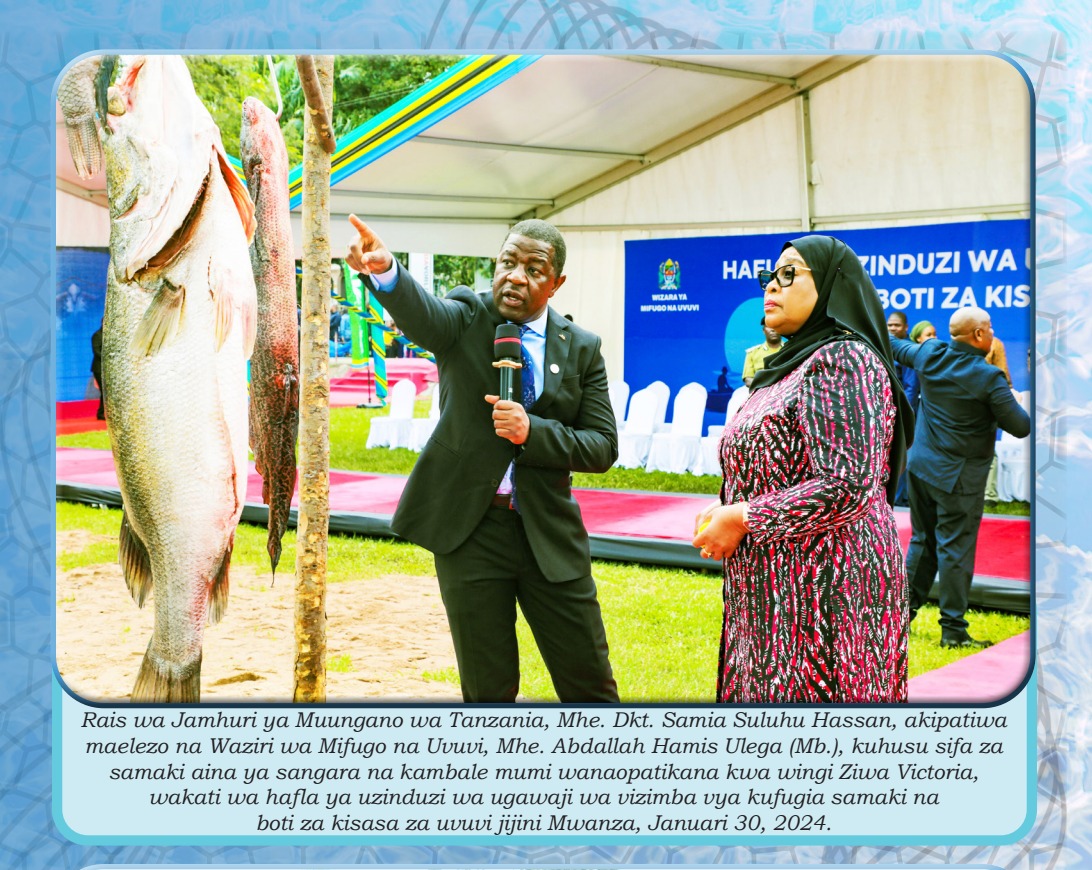In 2024/5 budget speech delivered by Hon. Abdallah Hamis Ulega (MP), Minister of Livestock and Fisheries, a significant emphasis was placed on the advancements in veterinary services. This sector is crucial for ensuring the health and productivity of livestock, which in turn supports Tanzania’s agricultural economy and food security.
The budget speech highlighted several key initiatives aimed at improving veterinary services across the country. One of the most notable achievements is the establishment of new veterinary regulations. These regulations are designed to standardize veterinary practices, ensuring that all livestock receive consistent and high-quality care. The regulations also aim to protect the health of animals by controlling the spread of diseases and ensuring that veterinary professionals are well-trained and certified.
Another major advancement is the appointment of veterinary officers at both regional and district levels. This decentralized approach ensures that veterinary services are accessible to farmers in all parts of the country, including remote and rural areas. These officers are responsible for providing on-the-ground support, including disease diagnosis, treatment, and prevention services. By having veterinary officers closer to the farming communities, the government aims to respond more swiftly to any outbreaks of livestock diseases.
A significant portion of the budget is allocated to combating livestock diseases through widespread vaccination campaigns. By April 2024, a total of 616,070,986 doses had been used to vaccinate livestock against 13 priority diseases. This massive vaccination effort has been instrumental in reducing the incidence of diseases such as foot-and-mouth disease, peste des petits ruminants, and Newcastle disease. These diseases, if left unchecked, can have devastating effects on livestock populations and, consequently, on the livelihoods of farmers.
The budget also underscores the importance of building capacity within the veterinary sector. Various training programs have been initiated to equip veterinary professionals with the latest knowledge and skills. These programs cover areas such as disease surveillance, diagnosis, treatment, and emergency response. By enhancing the capabilities of veterinary staff, the government aims to improve the overall effectiveness of veterinary services.
In addition to human resources, the government has invested in upgrading veterinary infrastructure. This includes the establishment of new veterinary clinics and the refurbishment of existing ones. These facilities are equipped with modern diagnostic tools and treatment equipment, enabling veterinarians to provide better care for animals. Furthermore, mobile veterinary clinics have been introduced to reach areas where permanent facilities are not feasible. These mobile units are crucial for providing services to nomadic pastoralists and farmers in remote regions.
The government’s commitment to improving animal health is also evident in its efforts to control zoonotic diseases – diseases that can be transmitted from animals to humans. These include diseases like rabies and brucellosis, which pose significant public health risks. The budget outlines strategies for controlling these diseases through vaccination, public awareness campaigns, and collaboration with human health services. By addressing zoonotic diseases, the government aims to protect both animal and human health.
The establishment of the Nsimbo Livestock Research Center, as mentioned in the budget speech, is another significant step forward. This center focuses on researching and developing new methods for disease control and improving animal health. It also serves as a training hub for veterinary professionals, providing them with hands-on experience in modern veterinary practices.
The budget speech by Hon. Abdallah Hamis Ulega (MP) also highlighted the importance of international collaboration in veterinary services. The government plans to work closely with international organizations such as the World Organisation for Animal Health (OIE) and the Food and Agriculture Organization (FAO) to implement best practices and benefit from global expertise. These collaborations are crucial for tackling transboundary animal diseases and ensuring that Tanzania’s livestock sector adheres to international standards.
In conclusion, the advancements in veterinary services outlined in the budget speech signify a major leap forward for Tanzania’s livestock industry. By establishing new regulations, appointing veterinary officers, conducting extensive vaccination campaigns, and investing in veterinary infrastructure and capacity building, the government is taking comprehensive steps to ensure the health and productivity of its livestock. These efforts not only support the agricultural economy but also enhance food security and public health. The proactive measures highlighted in the budget reflect the government’s commitment to a sustainable and prosperous future for Tanzania’s livestock sector.
Advancements in Veterinary Services: A Leap Forward for Tanzania’s Livestock Industry
